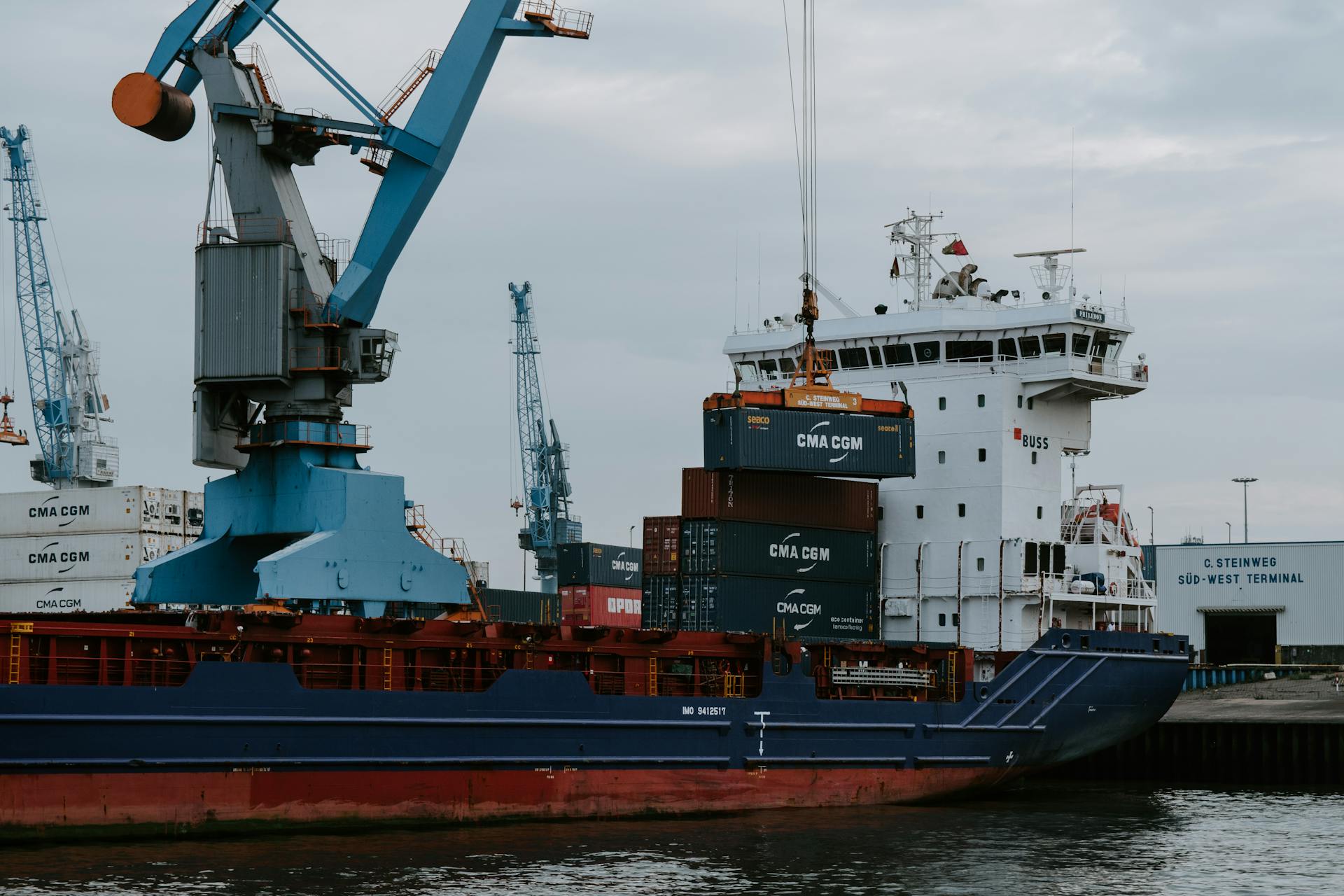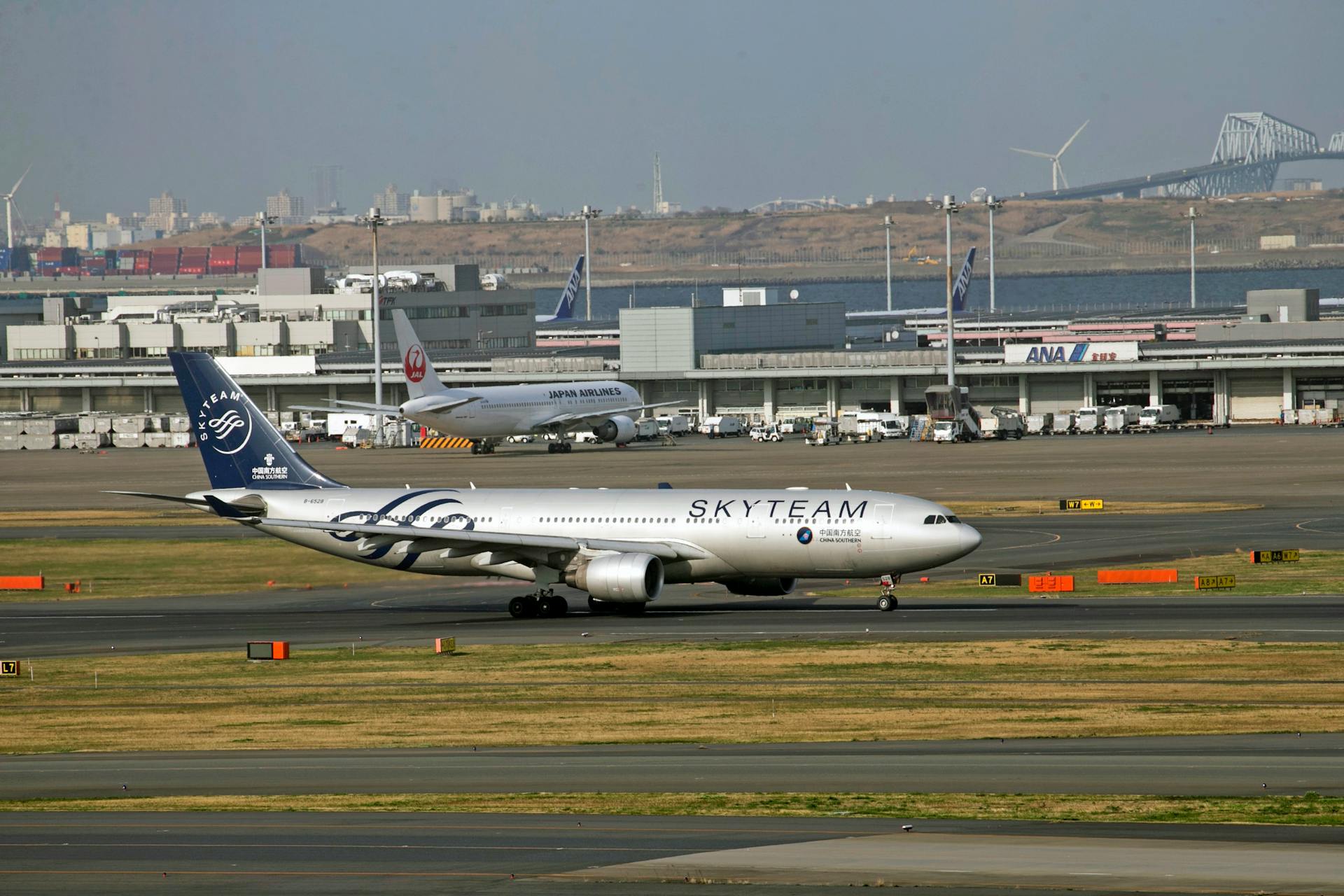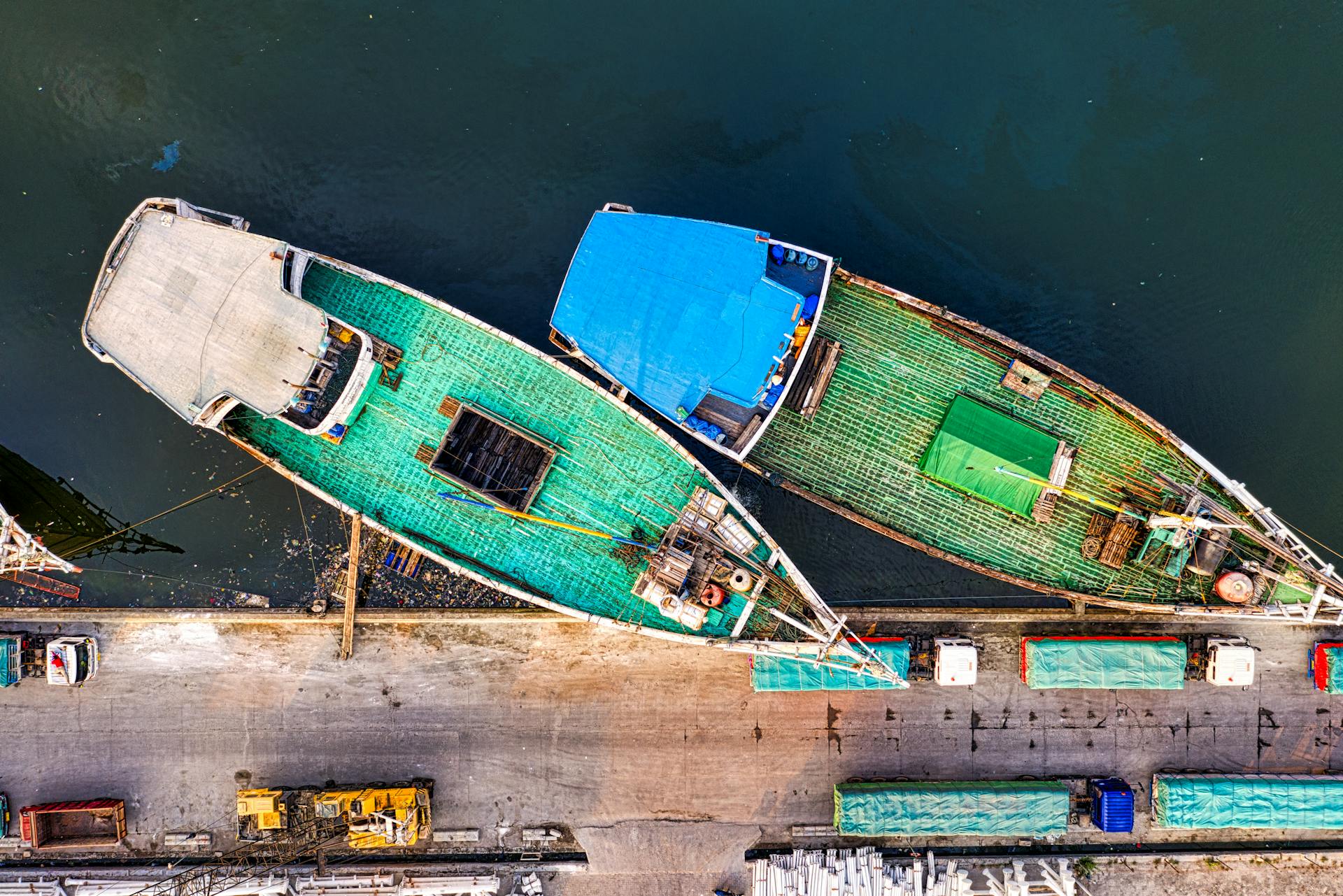
Having a marine cargo insurance policy in place can provide financial protection against losses or damages that occur during transportation by sea. This type of insurance is crucial for businesses that rely on international trade.
A marine cargo insurance policy can cover losses due to theft, fire, collision, or other accidents that may occur during transit. This includes damage to the cargo itself, as well as damage to the vessel or other equipment involved in the transportation process.
Businesses that transport goods by sea should consider the risks associated with marine cargo transportation, including the potential for damage or loss due to unpredictable weather conditions.
You might enjoy: Marine Shore Power
Why Marine Cargo Insurance?
You need marine cargo insurance because every business's insurance needs are different, and it's better to be safe than sorry.
You may think your goods are not at risk, but they always run the risk of a ship sinking, a plane crashing, or some other catastrophic event.
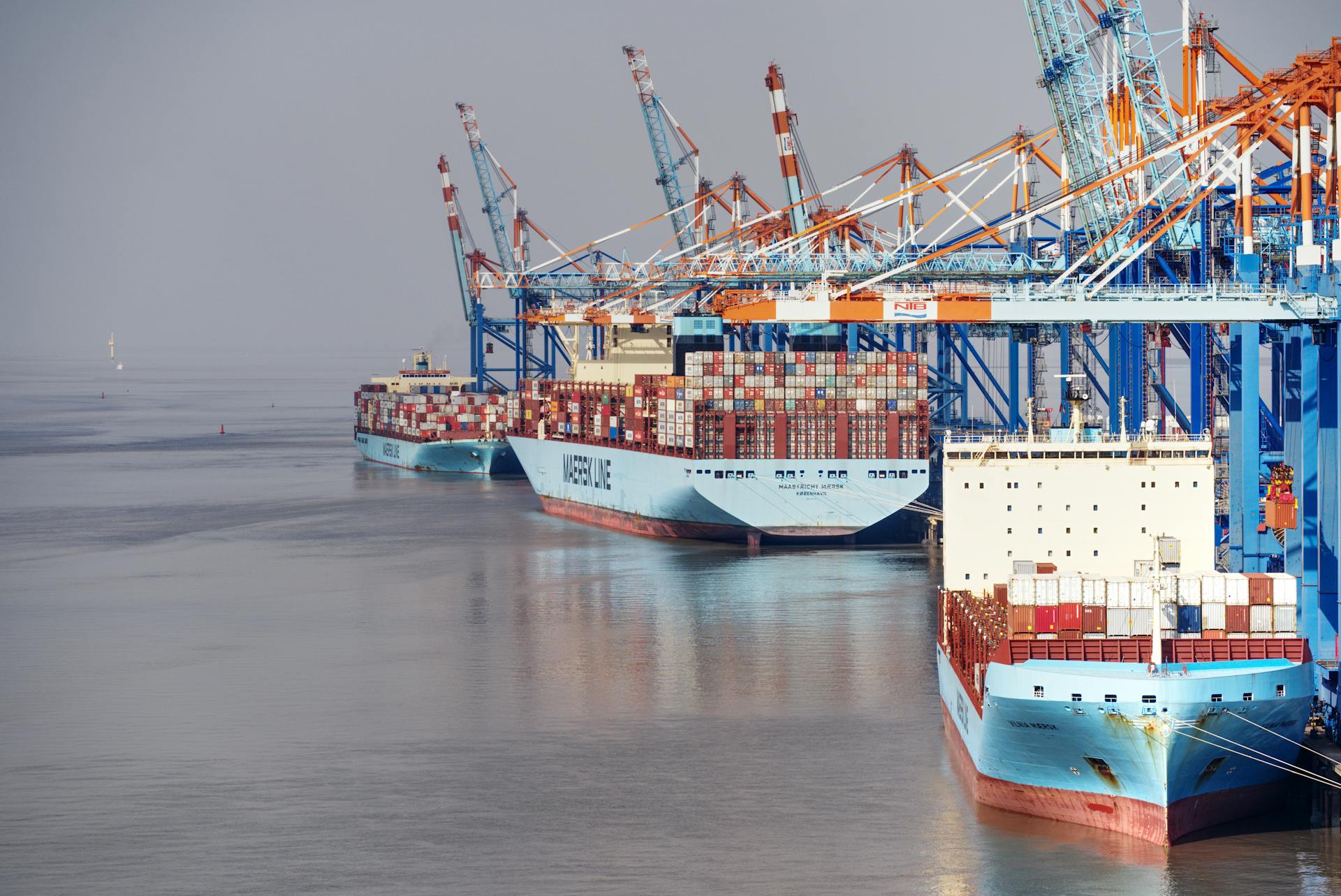
A recent study concluded that a shipper will be involved in a General Average incident once every eight years.
Without a cargo insurance policy in place, a General Average incident could potentially lead to a business-ending situation.
Marine cargo insurance protects your business from unexpected losses and damages, giving you peace of mind when shipping goods via ocean freight.
Understanding Marine Cargo Insurance Policy
Marine cargo insurance is designed to cover shipments of lawful goods and merchandise, packaged to withstand transportation risks. It's essential for protecting against physical loss or damage from external causes.
An all-risk marine cargo insurance policy is the most comprehensive shipping insurance available, covering any physical loss or damage from any external cause. This type of policy is often used for shipments made for the account of others.
To ensure coverage, it's crucial to pass along all material information to the insurer, as an Open Cargo Policy is considered a contract of "utmost good faith." This means that the insured must voluntarily reveal all pertinent information to the insurer.
A different take: United States Committee on the Marine Transportation System
What Is an All-Risk Policy?
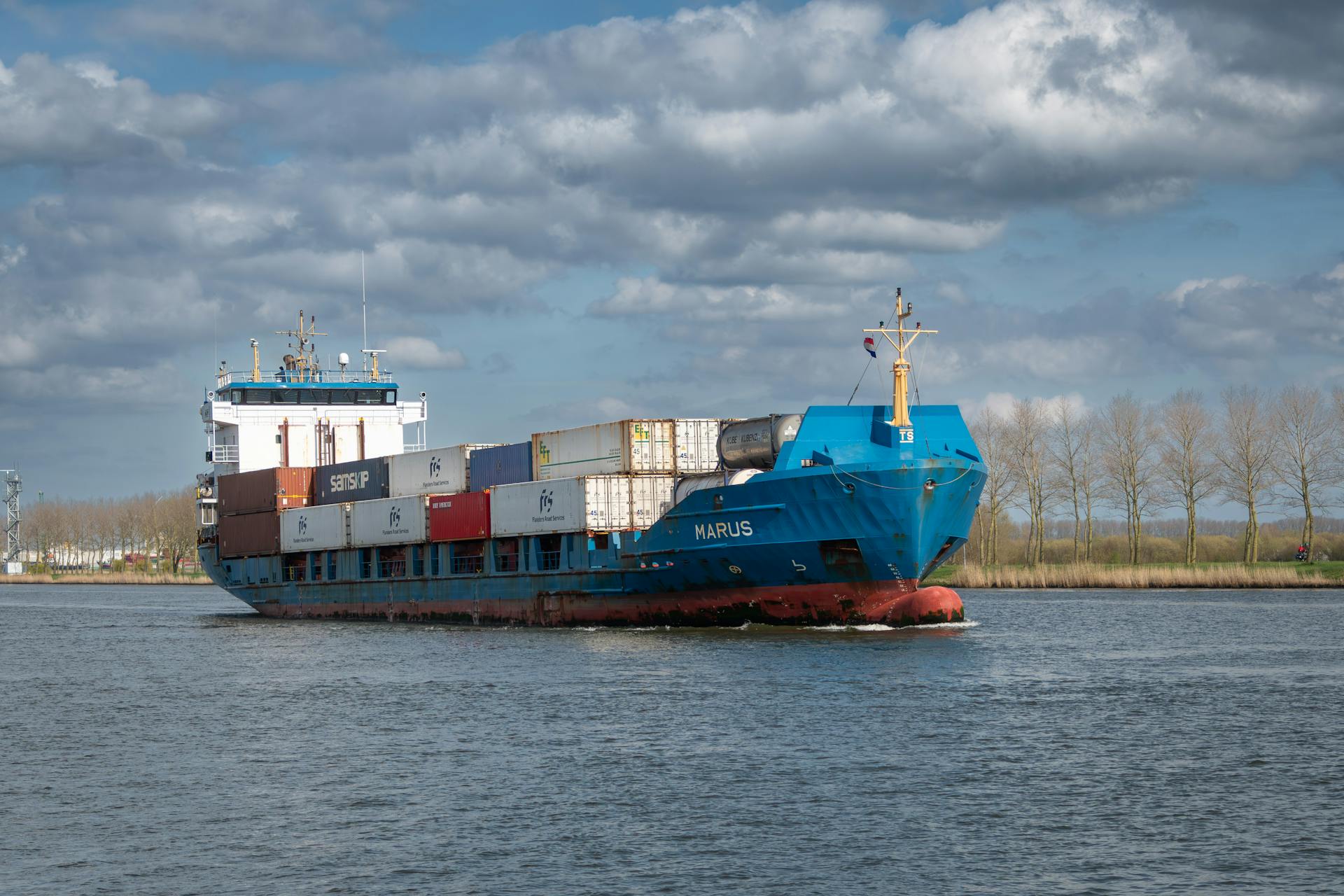
An all-risk cargo insurance policy is the most comprehensive shipping insurance available.
It covers any physical loss or damage from any external cause. Any exclusion not covered will be listed on the policy.
These exclusions can be added to the policy as an additional clause.
This type of policy automatically insures your shipments on set terms, conditions, and rates without needing to contact your insurance broker or company.
CIF + 10% or 110% Valuation Meaning
CIF + 10% or 110% Valuation is the standard valuation for both annual volume reporting and payment of cargo insurance claims, unless otherwise requested. This means the total premium owed is calculated using the policy rate times 110% of the total cost of goods.
The total cost of goods includes freight and other charges, plus 10%. This means the valuation is based on the commercial invoice amount, including freight and other charges, plus an additional 10%.
Any covered losses are paid at 110% of the cost of goods, including freight and insurance premium of the shipment less deductible amount.
Take a look at this: Transportation Insurance Cost
Policy Requirements and Terms
Check your contract carefully before making a final decision around marine cargo insurance, especially if you're using the CIP Incoterm, which has specific requirements in terms of how much coverage you obtain.
The CIP and CIF Incoterms specify insurance requirements, with CIP requiring you to obtain coverage and CIF including cost, insurance, and freight in the contract.
Marine cargo insurance policies often include Institute Cargo Clauses (A), Institute War Clause, Institute Strikes Clause (including Riots and Civil Commotion coverage), and General Average Coverage.
Here's a breakdown of some common policy terms:
- Institute Cargo Clauses (A)
- Institute War Clause
- Institute Strikes Clause (including Riots and Civil Commotion coverage)
- General Average Coverage
Contract Requirements
Contract Requirements are essential to understand when it comes to marine cargo insurance. You may be responsible for insuring your ocean freight shipment, either by purchasing marine cargo insurance or by self-insuring, if appropriate.
If you're using Incoterms within your contract, there are two that specify insurance requirements: CIP – Carriage and Insurance Paid To and CIF – Cost, Insurance, and Freight.
Here's an interesting read: Marine Shore Power Plugs and Sockets
To determine your insurance requirements, carefully check your contract, especially if you're using the CIP Incoterm, which has specific requirements in terms of how much coverage you obtain.
An Open Cargo Policy is also an option, where coverage acts as an umbrella, covering all shipments instructed to be insured in writing from the shipper.
Policy Terms
Policy terms are a crucial aspect of marine cargo insurance. They determine what's covered and what's not, so it's essential to understand them.
Institute Cargo Clauses (A) are a type of policy term that provides comprehensive coverage for marine cargo. This clause covers physical loss or damage to the cargo, including theft and rough handling.
The Institute War Clause is another important policy term that covers losses due to war, terrorism, or civil unrest. This clause is essential for shipments traveling through high-risk areas.
General Average Coverage is a policy term that covers losses due to extraordinary events, such as a ship being intentionally sunk to save other ships. This clause is typically included in marine cargo policies.
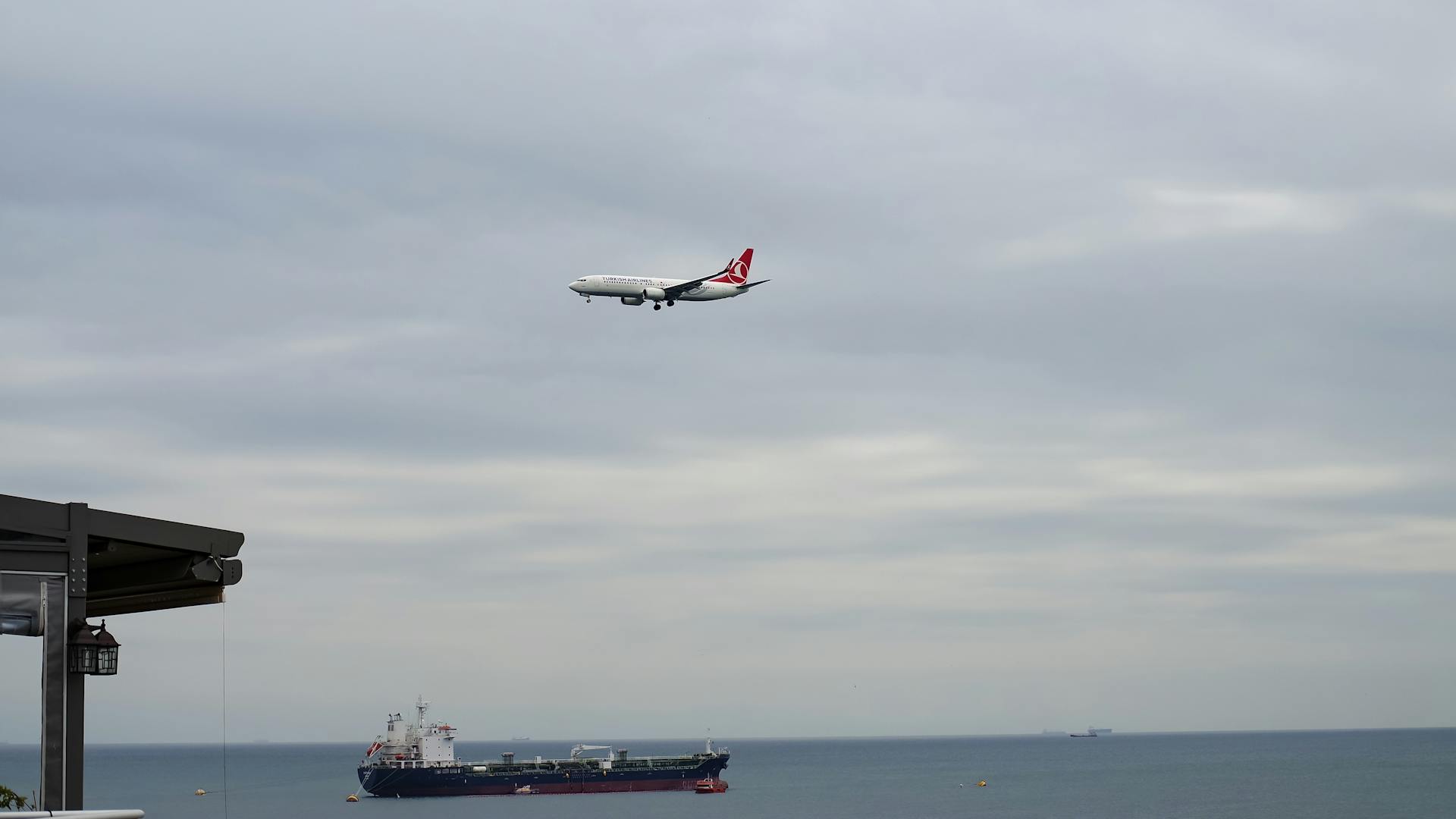
Institute Strikes Clause (including Riots and Civil Commotion coverage) covers losses due to strikes, riots, and civil commotion. This clause is essential for shipments traveling through areas prone to social unrest.
Here are some key policy terms to look out for in a marine cargo insurance policy:
- Institute Cargo Clauses (A)
- Institute War Clause
- Institute Strikes Clause (including Riots and Civil Commotion coverage)
- General Average Coverage
5% Deductible (Min $500)
When you're shipping fragile goods or merchandise, it's essential to consider a 5% deductible of the total insured value. This is typically a minimum of $500 (USD).
The deductible applies to specific items such as glass, glass products, granite, marble, porcelain, and tiles. These items are prone to damage and require extra protection.
Here are some items that are typically subject to the 5% deductible:
- Glass
- Glass products
- Granite
- Marble
- Porcelain
- Tiles or other fragile goods or merchandise
This deductible can help reduce your premium costs, but it's essential to understand the risks involved and ensure you're adequately protected.
What If It's Too Expensive?
If cargo insurance seems too expensive for your company, it's worth taking a closer look to see if there's a more affordable option available.
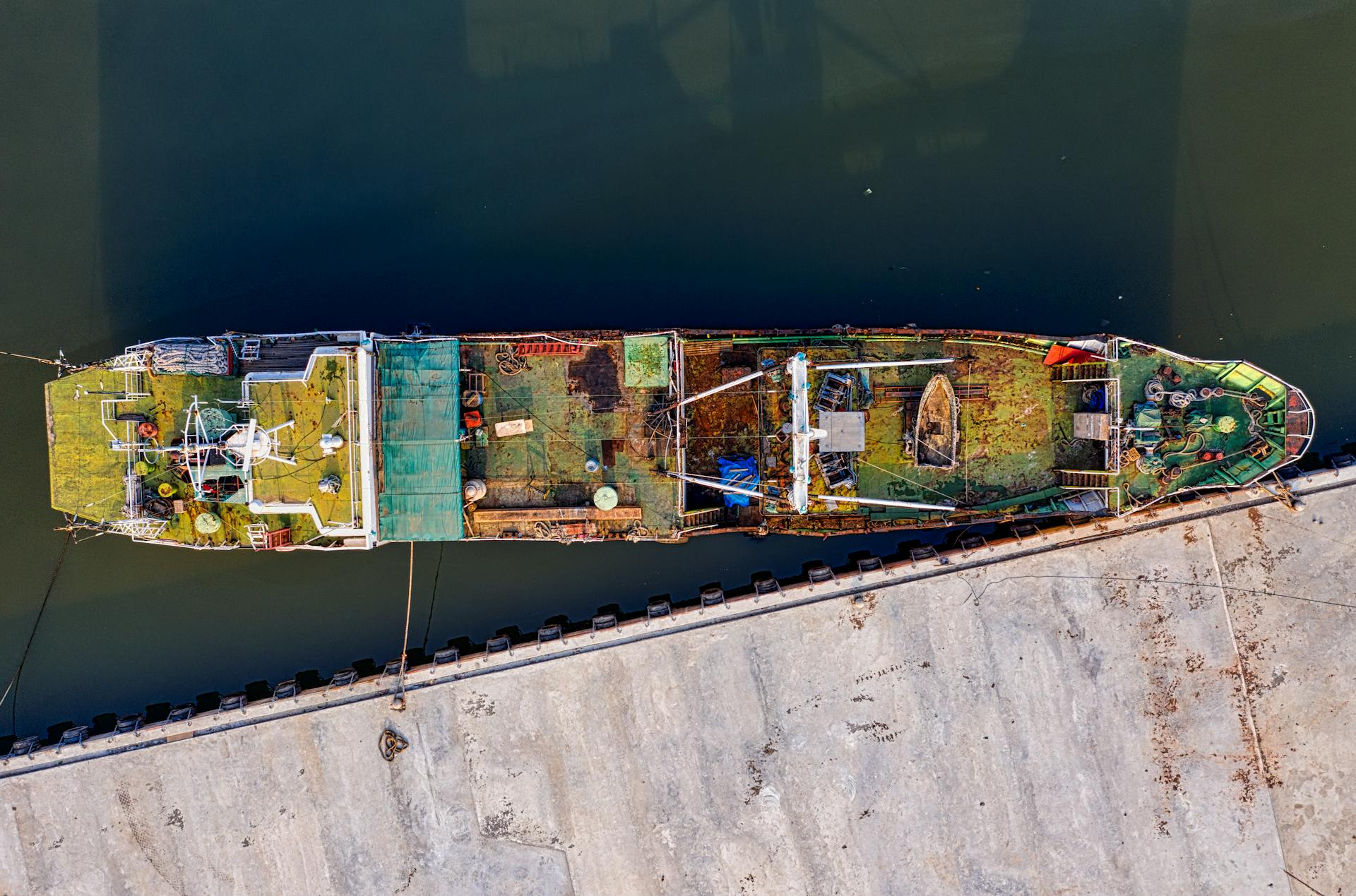
Chances are, cargo insurance isn't as expensive as you think, but to get a proper answer, you'll need to fill out an application for a shipping insurance quote.
Our team can use our buying power to come up with cost estimates, and if you already have a policy, we can review it and suggest ways to improve it.
It costs nothing to obtain a quote or advice from us, so it's definitely worth exploring.
Buyer's Contingency Policy
A buyer's contingency policy is a type of insurance that provides coverage for goods once the title has transferred and the seller's insurance policy no longer applies.
This policy is purchased by the buyer from the provider, and it will pay for damage to the goods upon arrival. The buyer's insurance company will then subrogate against the seller's insurance.
TRG Marine can write contingency policies, which offer an additional layer of protection for buyers.
TRG Policy Minimum Annual Premium
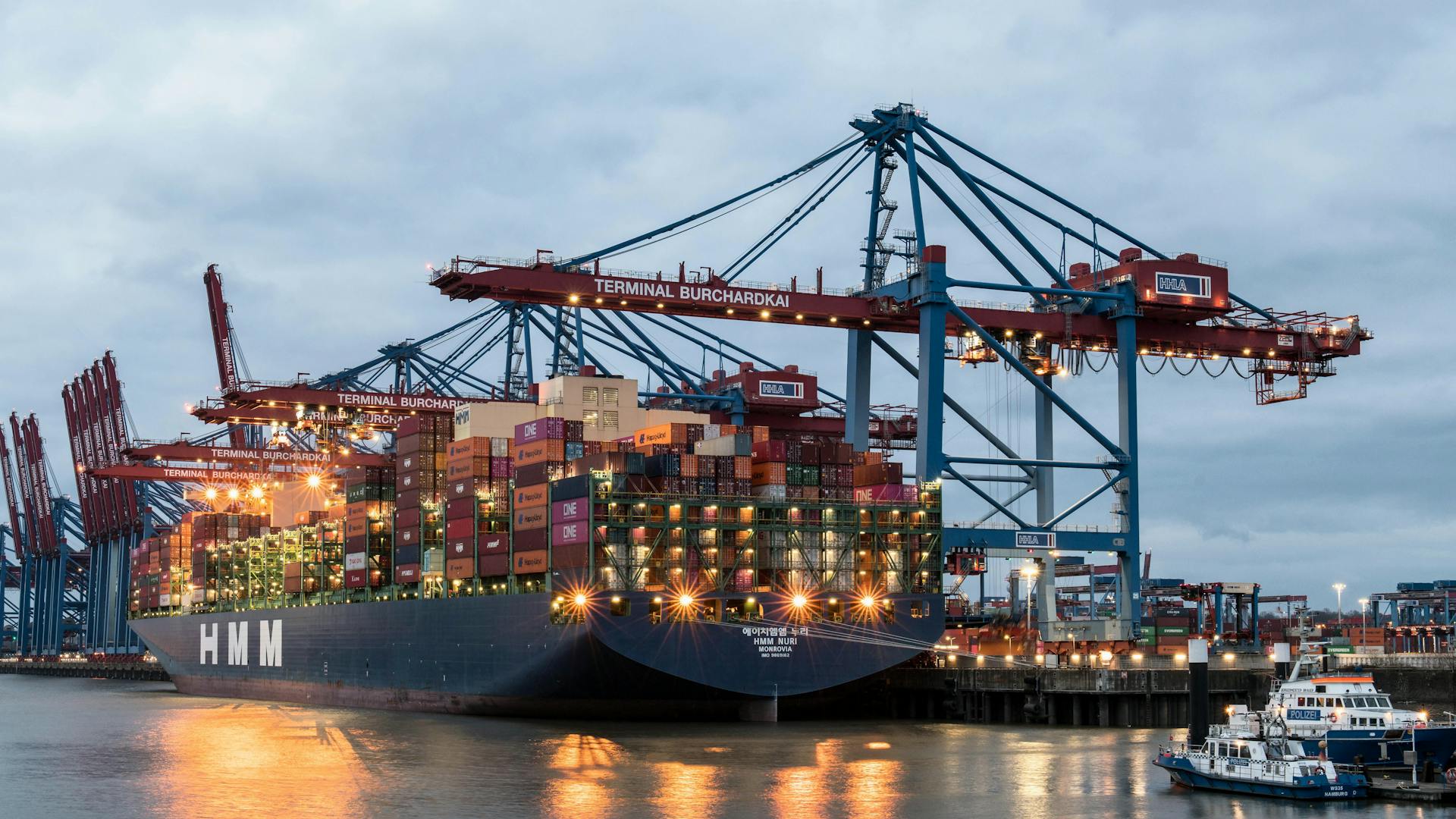
The minimum annual premium with annual adjustment available on a TRG Marine policy is $750.
As the insured, you will be required to make an annual deposit upon binding of a policy, which can be a significant upfront cost.
This minimum premium is a standard requirement for all TRG Marine policies, ensuring that you have a basic level of coverage in place.
It's essential to carefully review your policy and understand the terms, including the minimum premium, to ensure you're adequately protected.
This annual deposit can be a crucial aspect of your policy, and it's worth considering how it will impact your business's cash flow.
Types of Marine Cargo Insurance
Marine cargo insurance is designed to cover shipments of lawful goods and merchandise that are packaged to withstand the acceptable risks of transportation. All-risk marine cargo insurance is available to cover shipments made for the account of others.
There are specific types of marine cargo insurance, including all-risk policies that cover shipments against physical loss or damage from external causes. Coverage is arranged through an open cargo policy underwritten by Lloyds of London.
Insured shipments can be owned or consigned to the assured, and coverage is available for shipments that the assured agrees or receives instructions to insure.
Understanding Three Kinds
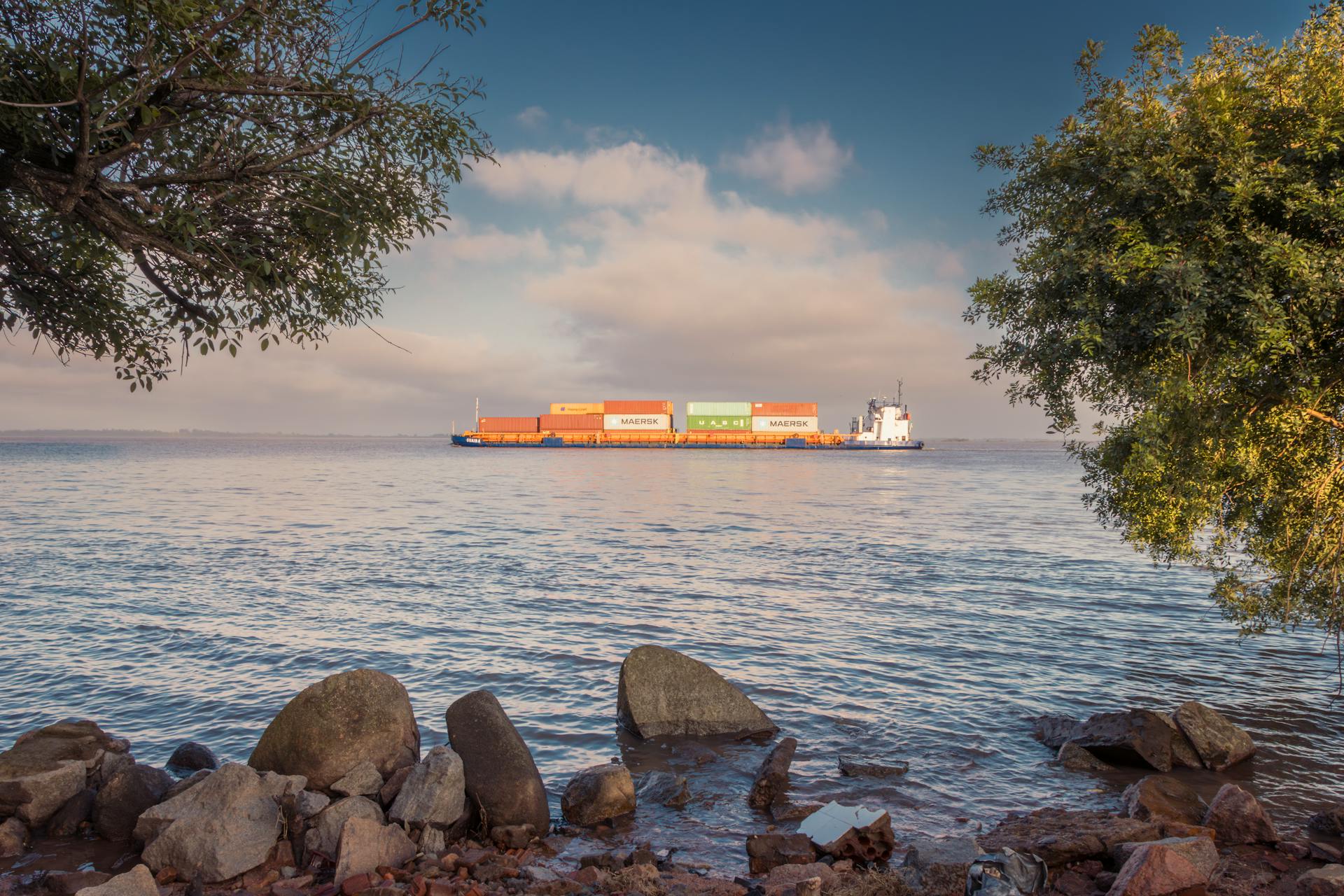
All Risk insurance is the most comprehensive type of coverage, covering all physical loss or damage from an external cause, except for named exclusions such as improper or inadequate packing.
FPA, or Free of Particular Average, is a named perils coverage that only covers losses resulting from specifically named causes, often used when All Risk coverage cannot be obtained due to elevated risk.
Some of the most common exclusions in All Risk insurance include abandonment of cargo, rejection by Customs or other governmental authorities, and failure to pay or collect.
The Harter Act of 1893 defined the responsibilities of ocean freight carriers and prevented them from including clauses that relieved them of specific types of liability.
The Harter Act also made a concession to ocean freight carriers, recognizing that they could not be held liable in circumstances beyond their control, such as perils of the sea or acts of God.
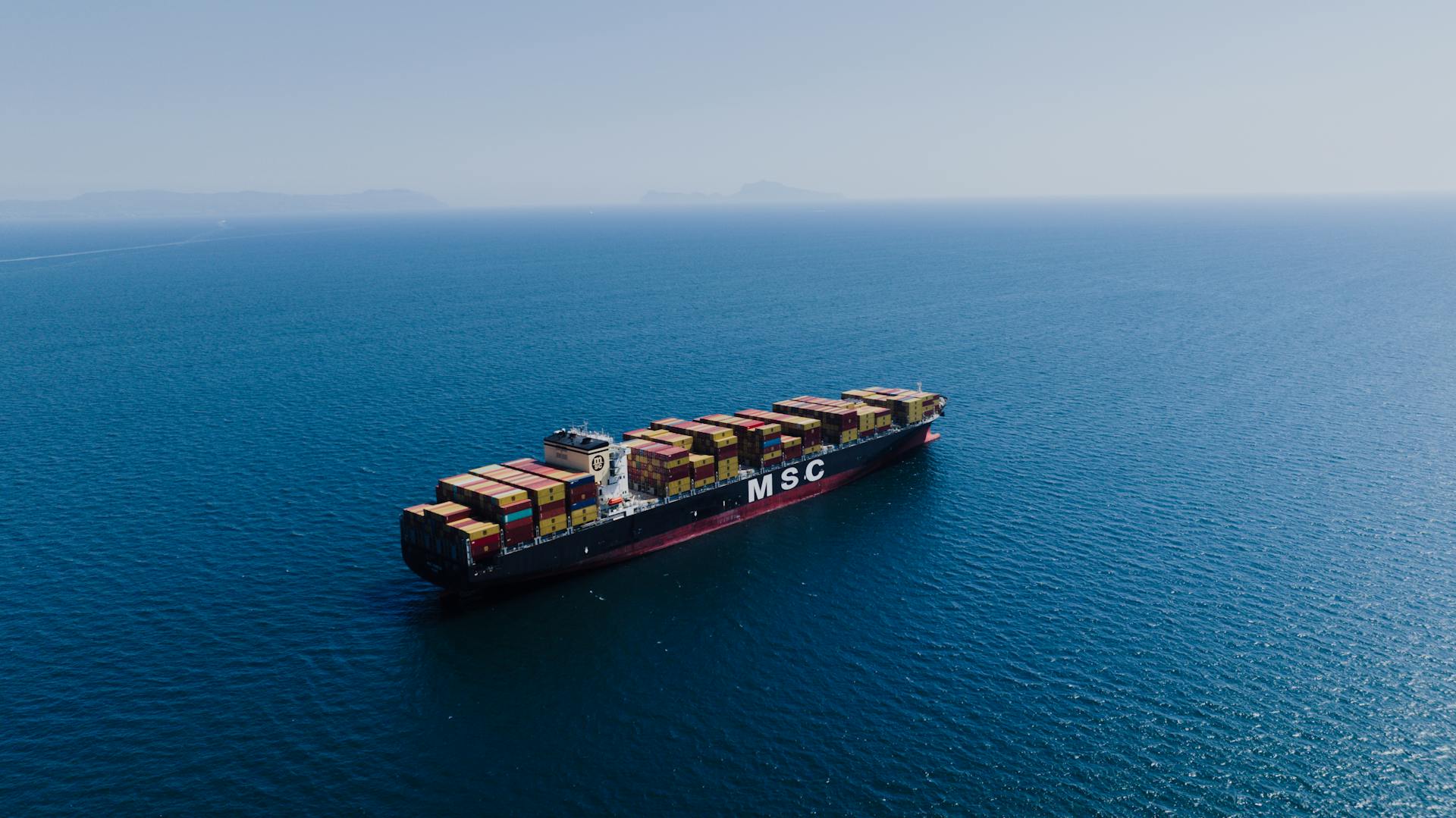
COGSA, or the Carriage of Goods by Sea Act, governs ocean freight shipments entering or leaving the U.S. and allows ocean carriers to limit their liability to $500 per package.
Marine cargo insurance can protect shippers from significant financial loss by covering the full replacement value of their cargo, rather than just the limited liability provided by ocean carriers.
Here are some examples of exclusions in All Risk insurance:
- Improper or inadequate packing
- Abandonment of cargo
- Rejection by Customs or other governmental authorities
- Failure to pay or collect
- Inherent vice
Lloyd's of London Market
Lloyd's of London Market is a global leader in marine cargo insurance, serving over 200 countries and territories. It's the premier insurer for marine, truck, rail, and air cargo, and its members underwrite in syndicates on behalf of various investors.
Lloyd's has a rich history, dating back to the 1600s when its founders recognized the need for cargo insurance among international traders. Today, it insures some of the largest and most complicated risks.
The Lloyd's Market provides 44% of its business in the United States and Canada, a testament to its global reach and expertise. From celebrity body parts to plasma televisions, millions of people are covered by Lloyd's of London.
TRG Marine has a relationship with Vectura Underwriting, a cover-holder of Lloyd's, which gives them direct access to the insurance power and expertise of Lloyd's. This partnership allows TRG Marine to offer competitive terms and conditions for their cargo insurance policy holders.
Insurance Coverage and Exclusions
Marine cargo insurance provides comprehensive coverage for shipments against exposures during transportation. This insurance covers shipments of lawful goods and/or merchandise, which are packaged to withstand the acceptable risks of transportation.
The policy covers all shipments made for the account of others, which the Assured may agree or receive instructions to insure. Coverage is arranged through an open cargo policy underwritten by Lloyds of London.
Some situations and commodities are excluded from marine cargo insurance policies. It's essential to review the policy language to ensure your needs can be met.
Marine cargo policy provides door-to-door coverage for inland shipments and imports/exports. This coverage extends to goods impacted by physical loss or damage, theft, and rough handling.
Falvey's expertise is in three main areas: general cargo, life sciences, and technology. Whether you're shipping pharmaceuticals, electronics, or medical devices, Falvey's marine cargo insurance helps protect your property while it moves through the supply chain.
Here are some of the flexible valuations and coverage options offered by Falvey:
- Flexible valuations
- Drop shipment coverage
- Warehouse-to-warehouse coverage
- Exhibition/trade fairs coverage
- Salesperson samples coverage
- Expediting and extra expenses
- Fraudulent Bills of Lading
- Local policies in 160 countries
An all-risk cargo insurance policy is the most comprehensive shipping insurance available.
Working with Insurance Providers
Many marine cargo insurance policies require you to work with a specific insurance provider, and it's essential to understand their roles and responsibilities.
Insurance providers typically offer a variety of coverage options, including all-risk and named-perils policies.
When selecting an insurance provider, consider their reputation, financial stability, and claims process.
Their claims process is usually straightforward, with most providers offering online claims submission and dedicated claims adjusters.
Contact a Specialist
If you're unsure about how to navigate the insurance world, consider reaching out to a specialist. They can provide personalized guidance and answer any questions you may have.
You can contact a Marine Specialist for questions about Marine Cargo Insurance, such as Warehouse Coverage. They're available to provide expert advice and support.
Reaching out to a specialist can save you time and effort in the long run. It's like having a trusted friend who knows the ropes and can point you in the right direction.
TRG's Relationship with Lloyd's
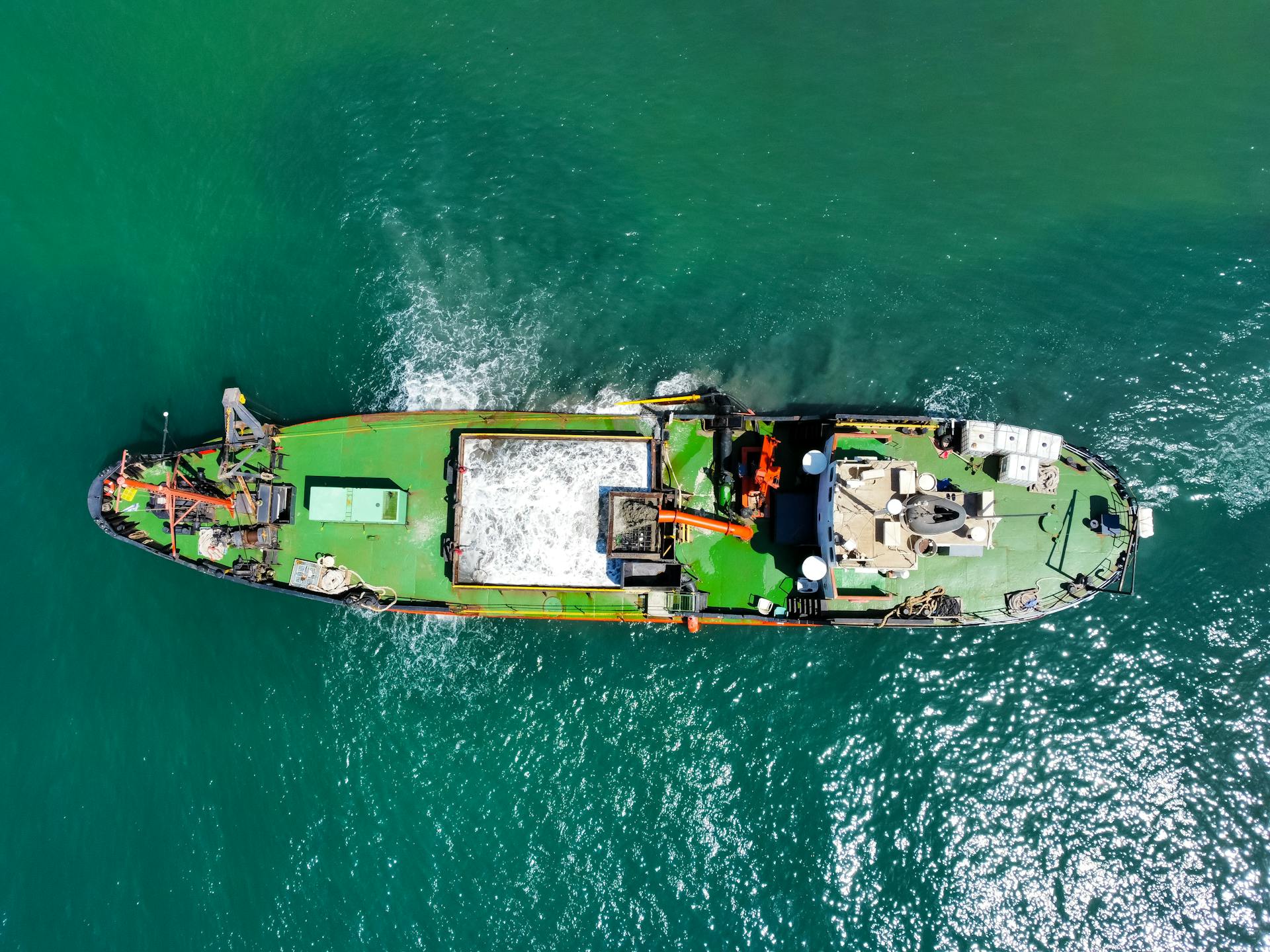
TRG's Relationship with Lloyd's is a unique one, as they have a relationship with Vectura Underwriting, a cover-holder of Lloyd's of London. Vectura Underwriting specializes in niche insurance sectors.
This partnership gives TRG Marine direct access to the insurance power, capacity, and expertise of Lloyd's of London. As a result, TRG Marine can offer competitive terms and conditions for their cargo insurance policy holders.
Vectura Underwriting works on behalf of TRG Marine to negotiate these competitive terms, ensuring that policy holders get the best coverage at the lowest price.
Comparing Trg and Current Provider Quotes
TRG Marine's quote is so much lower than your current provider's because Lloyd's of London has been around for over 300 years, bringing greater understanding and added intelligence to your specialized risk.
This experience allows TRG Marine's cargo insurance specialists to find a custom solution and deliver very competitive rates, unlike insurance agents who may try to fit your policy into a generic box.
Lloyd's of London's long history and market relations give TRG Marine's an edge in providing competitive rates, making them a great option to consider when shopping for shipping insurance.
Quotation Request
Getting a quotation for an insurance policy is a straightforward process. You can fill out a quote application either online or over the phone.
To get a quote, you'll need to provide some basic information. This can usually be done in just a few minutes.
Once your application is complete, it's just a matter of waiting for the insurance provider to respond with their rates. According to some providers, this can take as little as 2-3 business days.
Claims and Scenarios
In the event of a cargo insurance claim, TRG Marine works as a liaison between you and the insurance company. This means they'll guide you through the process and help resolve any issues that may arise.
TRG Marine has years of experience helping customers with claims, so you can trust them to provide excellent support and guidance. Their expertise will be invaluable in navigating the claim process.
To minimize the risk of a claim, TRG Marine offers a guide to claims mitigation, which is a great resource to learn more about preventing claims in the first place.
Financial and Administrative Aspects
When purchasing a marine cargo insurance policy, it's essential to consider the financial implications.
The policy's premium cost is typically calculated based on the value of the cargo, its destination, and the mode of transport.
You can expect to pay between 0.5% to 2% of the cargo's value as an annual premium.
The policy's deductible, which is the amount you must pay out of pocket before the insurance kicks in, can range from $100 to $10,000.
For instance, if your cargo is valued at $100,000 and you have a $1,000 deductible, you'll need to pay the first $1,000 of any losses before the insurance covers the remaining $99,000.
It's crucial to understand the policy's terms and conditions, including the coverage limits and any exclusions or limitations.
In most cases, marine cargo insurance policies have a coverage limit of up to 75% of the cargo's value.
You might enjoy: High Value Cargo Transportation
Frequently Asked Questions
What is the general average of marine cargo insurance?
General Average is a maritime law principle requiring shared contribution from all saved cargo to compensate losses of sacrificed cargo during a common peril. It's a key concept in marine cargo insurance, affecting the value and distribution of claims.
What is the difference between marine insurance and marine cargo insurance?
Marine insurance covers the vessel, its machinery, and third-party liability, while marine cargo insurance specifically protects the goods being transported from origin to destination. Understanding the difference is crucial for ensuring the right coverage for your maritime assets.
What is not covered in marine cargo insurance?
Marine cargo insurance typically excludes coverage for intentional misconduct, losses due to delay or market fluctuations, and normal wear and tear, leakage, or weight loss. Review the policy details to understand what's not covered and ensure you're adequately protected.
Sources
- https://www.approvedforwarders.com/simple-guide-understanding-marine-insurance-approved-freight/
- https://www.chrobinson.com/en-us/shippers/freight-services/ocean/marine-cargo-insurance/coverage-summary/
- https://falveyinsurancegroup.com/blog/marine-cargo-insurance/marine-cargo-insurance/
- https://www.roanokegroup.com/faqs/what-is-marine-cargo-insurance/
- https://traderiskguaranty.com/marine-cargo-insurance/frequently-asked-questions/
Featured Images: pexels.com
